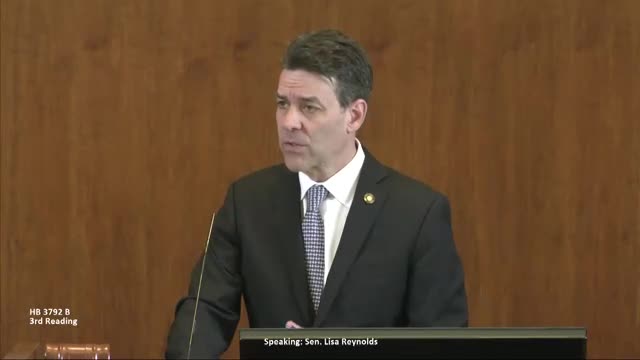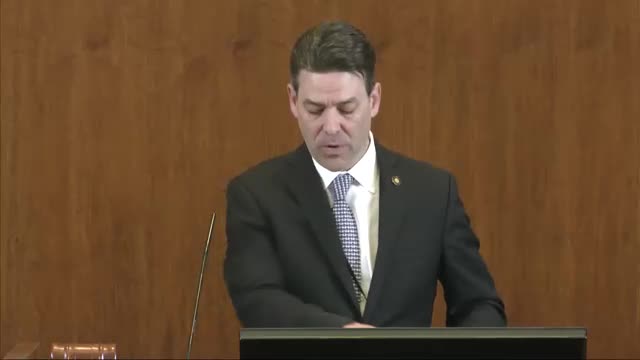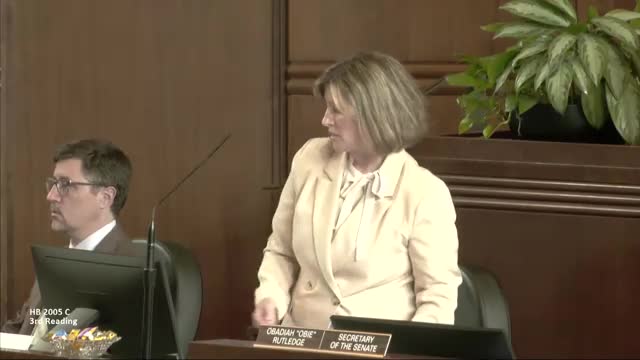Article not found
This article is no longer available. But don't worry—we've gathered other articles that discuss the same topic.

Senate approves expansion of Oregon Energy Assistance Program; ratepayer charges to double

Senate adopts House Bill 2614 to move and strengthen public defense commission oversight

Senators pass statewide shelter program; critics call $217 million price tag premature

Senate approves House Bill 3940 B to create dedicated wildfire mitigation funds, with debate over new nicotine tax

